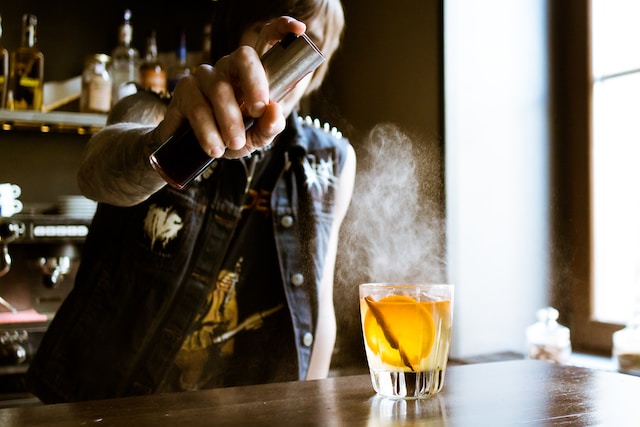
In the world of mixology, the ingredients used in a drink can often make or break the final result. From classic recipes to innovative modern creations, the quality and balance of the flavors used can truly elevate a drink to the next level.
Some of the most common ingredients found in drinks include various types of alcohol, such as vodka, gin, tequila, whiskey, and rum. Each of these spirits has its own unique flavor profile and can be further enhanced with the addition of mixers like fruit juices, sodas, and syrups.
But it’s not just about the alcohol. The use of fresh herbs, spices, and fruits can add a wonderful depth of flavor and aroma to a drink. Mint, basil, rosemary, and thyme are just a few examples of the herbs commonly used, while citrus fruits like lemons, limes, and oranges provide a burst of sour sweetness.
The addition of bitters can also provide a complex flavor element to a drink. These concentrated mixtures of herbs, roots, and spices are added in small amounts to enhance the overall flavor of the drink. Some of the most popular bitters include Angostura, Peychaud’s, and Orange bitters.
And let’s not forget about the ice. The type of ice used can greatly affect the overall taste and presentation of the drink. Crushed ice is ideal for frozen drinks, while large cubes are perfect for cocktails that need to be stirred gently.
Common Spirits
- Vodka: Vodka is a neutral spirit that is distilled from grains like wheat or rye. It has a smooth, clean taste and is often used in light and refreshing cocktails. Popular vodka-based cocktails include the Bloody Mary, the Cosmopolitan, and the Moscow Mule.
- Rum: Rum is a sweet spirit that is made from sugarcane or molasses. It has a distinctive flavor that ranges from light and fruity to dark and smoky. Rum is a popular choice for tropical cocktails, such as the Mai Tai, the Mojito, and the Piña Colada.
- Tequila: Tequila is a spirit that is distilled from blue agave plants. It has a strong, distinctive flavor that is beloved by tequila enthusiasts. Tequila is commonly used in cocktails like the Margarita, the Paloma, and the Tequila Sunrise.
- Whiskey: Whiskey is a spirit that is made from fermented grains like corn, rye, or barley. It has a complex flavor that ranges from earthy and smoky to sweet and spicy. Whiskey is a popular choice for classic cocktails like the Old Fashioned, the Manhattan, and the Whiskey Sour.
- Gin: Gin is a spirit that is flavored with juniper berries and other botanicals, such as coriander and citrus peel. It has a dry, herbal flavor that is beloved by many cocktail aficionados. Gin is the main ingredient in classic cocktails like the Gin and Tonic, the Martini, and the Negroni.
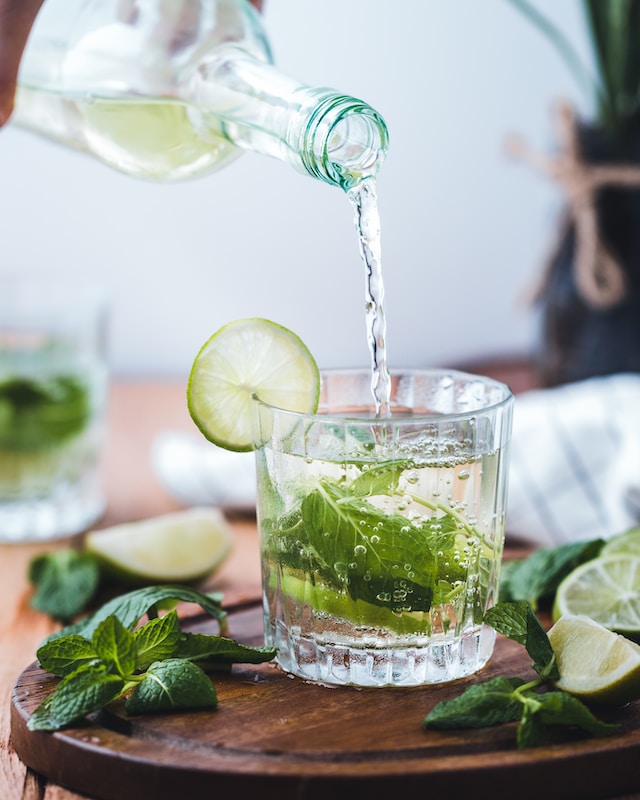
Each of these spirits has its own distinct flavor and aroma. Experimenting with different spirits and cocktails can help you discover your own personal preferences and refine your mixology skills. Whether you prefer light and refreshing drinks or bold and complex flavors, there is sure to be a cocktail that will satisfy your taste buds.
Mixers and Liqueurs
Mixers and liqueurs are the essential ingredients that bring a cocktail together, providing the sweetness, acidity, and carbonation necessary to balance the flavors of the spirits used. Here are some of the most commonly used mixers and liqueurs, along with their unique characteristics and uses in cocktails.
Mixers
Soda: Club soda, ginger ale, and cola are some of the most popular soda mixers used in cocktails. These carbonated beverages add a refreshing fizziness to drinks and are often paired with dark spirits like whiskey or rum.
Tonic water: Tonic water is a carbonated mixer that has a slightly bitter taste, making it ideal for use with gin in iconic drinks like the Gin and Tonic.
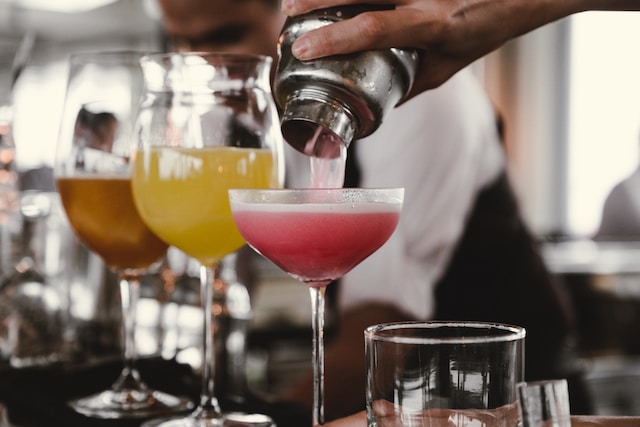
Fruit juices: From orange and grapefruit to cranberry and pineapple, fruit juices are commonly used to add acidity and sweetness to cocktails. Freshly squeezed juices are preferred over canned or pre-packaged varieties for a more authentic flavor.
Liqueurs
Triple sec: Triple sec is an orange-flavored liqueur that is used in many classic cocktails like the Margarita or Cosmopolitan. It is also a staple ingredient in many tiki-style drinks.
Campari: Campari is a bitter, bright red liqueur that is often paired with gin and sweet vermouth in a Negroni. It can also be used in spritzes and other bitter cocktails.
Amaretto: Amaretto is a sweet almond-flavored liqueur that pairs well with whiskey or bourbon. It is often used in dessert or coffee-based cocktails.
Cointreau: Cointreau is a type of triple sec that is made with sweet and bitter orange peels. It has a milder flavor than other orange liqueurs and is often used in margaritas and cosmopolitans.
Fresh Ingredients
Fresh ingredients are a crucial component of a well-crafted cocktail, adding depth and complexity to the flavor profile. The use of fresh fruits, herbs, and spices can elevate a drink from ordinary to extraordinary, providing a fresh and vibrant taste that is hard to replicate with pre-made mixers and syrups.
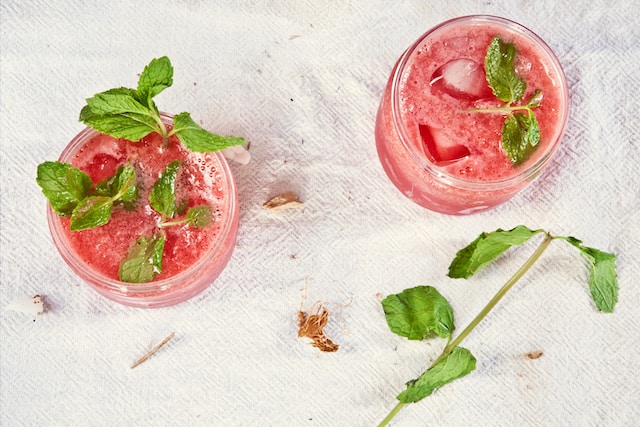
Seasonal ingredients are especially important when it comes to creating unique and flavorful drinks. Using produce that is in season ensures that the ingredients are at their freshest and most flavorful.
It also allows for experimentation with new flavors and combinations. For example, summer cocktails can be made with fresh berries, watermelon, and cucumber, while fall cocktails may feature apples, pears, and cinnamon.
Preparing fresh ingredients also requires attention to detail. Herbs should be washed and dried thoroughly before being used, while fruits and vegetables should be peeled and sliced neatly. Proper preparation techniques will ensure that the flavors of the fresh ingredients are fully incorporated into the drink.
Syrups and Bitters
Syrups and bitters are essential components of any well-crafted cocktail. Syrups are used to provide sweetness, balance acidity, and add flavor. There are a variety of different syrup types that can be used in cocktails, with simple syrup being the most common. Simple syrup is made by dissolving equal parts sugar and water in a saucepan over low heat until the sugar dissolves completely. Once it cools, it can be stored in a bottle for up to a month.
Flavored syrups are made by adding various flavorings, such as fruits, herbs, or spices, to the simple syrup base. For example, a strawberry syrup can be made by mashing fresh strawberries and adding them to the simple syrup.
Other popular flavored syrups include ginger, lavender, and vanilla.
Bitters, on the other hand, are concentrated mixtures of herbs, roots, and spices that are used to add complexity and depth to cocktails. They are often added in small amounts to enhance the overall flavor and provide a unique taste experience. Bitters come in a variety of flavors, with Angostura, Peychaud’s, and Orange bitters being the most commonly used in cocktails.
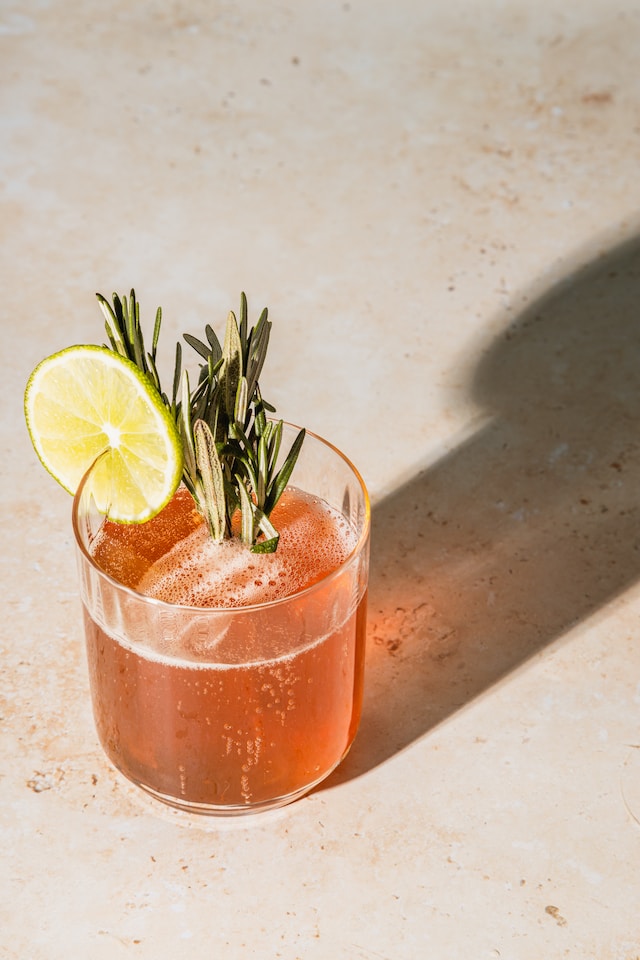
Garnishes and Accents
Garnishes are the final touch that can elevate a cocktail from good to great. They not only add a decorative element to a drink, but also enhance the flavor and aroma. Common garnishes include citrus twists, olives, cherries, and herbs like rosemary and thyme.
Creative mixologists often use garnishes to experiment with new flavors and presentation styles. For example, adding a sprig of lavender or a dash of cinnamon can create a unique and memorable cocktail experience. The possibilities are endless when it comes to adding accents and garnishes to cocktails, encouraging mixologists to think outside the box and create truly one-of-a-kind drinks.
In the end, the ingredients used in a drink are only limited by the creativity and skill of the bartender. With the right combination of flavors and textures, a truly unforgettable drink can be crafted, one that will leave a lasting impression on the palate of anyone who tries it.
